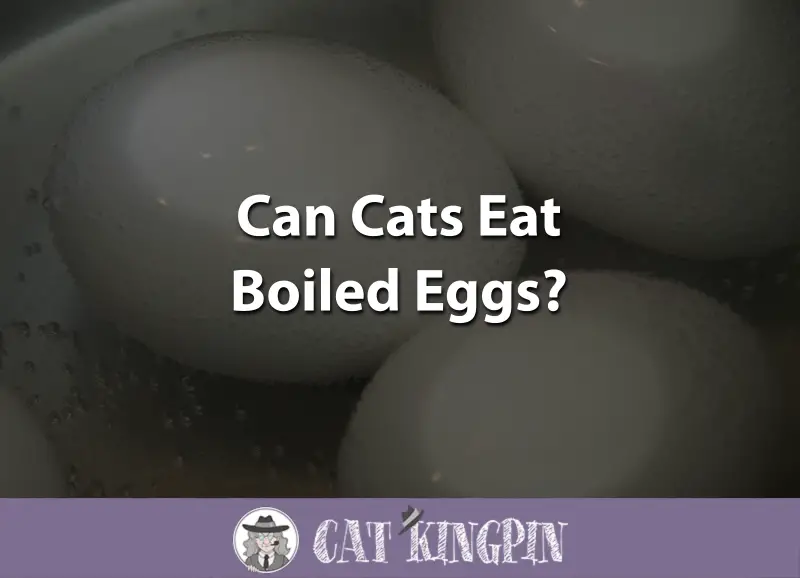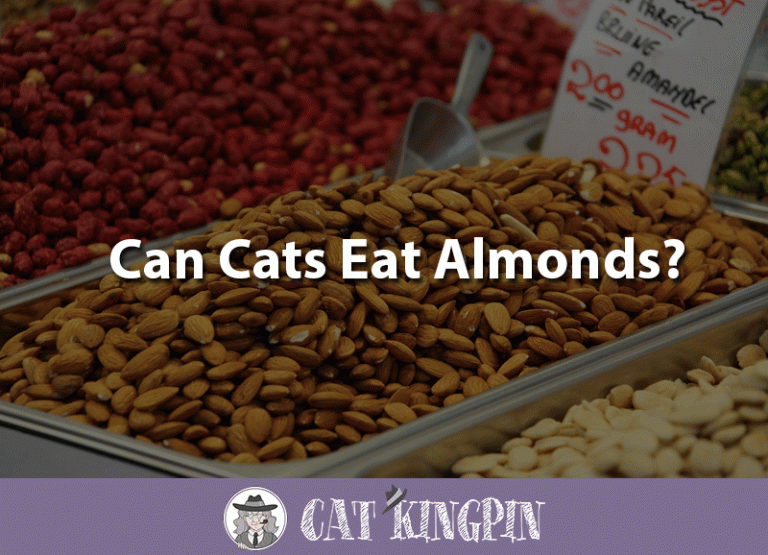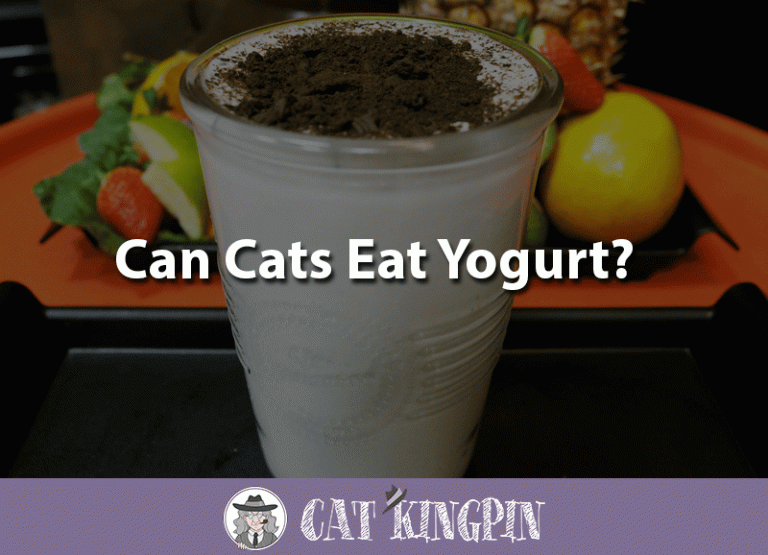Can Cats Eat Boiled Eggs?
Hard-boiled, soft-boiled, scrambled, over-easy, sunny side up, poached, or as an omelet! There are plenty of ways to eat eggs. And, when consumed in moderation, eggs are a great all-around food for cats, supplying many important nutrients.
In the home kitchen, boiling is one of the most common ways to prepare eggs. If you’re always on the lookout for special treats your cat, you may be wondering if cats can eat boiled eggs.
In this article we’ll cover the following:
- Cats and Eggs, What You Need to Know
- Can Cats Eat Soft-boiled Eggs?
- Can Cats Eat Hard-boiled Eggs?
- Should Kittens Eat Boiled Eggs?
- Benefits and Drawbacks to Cats Eating Boiled Eggs
- Healthy Alternatives to Boiled Eggs
Cats and Boiled Eggs, What You Need to Know
People and cats have been eating eggs since the dawn of time. It’s even thought that chickens may have been domesticated first for their egg production.
As anyone who has ever cracked open the shell of an egg can tell you, inside the shell you’ll find the clear egg white and the yellow egg yolk. Nutritionally, over half the fat in an egg is found in the yolk, while the white contains the higher percentage of the protein.
As mentioned before, there are many ways to cook eggs. The difference between soft- and hard-boiled eggs is that soft-boiled eggs are only boiled for about half as long, leaving a runny egg yolk inside.
While cats are primarily meat eaters, many do seem to enjoy the occasional boiled egg, as we can see in the video below:
Can Cats Eat Soft-boiled Eggs?
In the wild, cats don’t have a choice as to how their eggs are cooked. If a wild feline catches a chicken, they’ll eat it bones and all. And, any eggs they may happen to get their paws on haven’t been cooked.
However, this doesn’t mean soft-boiled eggs are the best choice for your cat. The main problem with undercooked eggs is that they can harbor bacteria.
A much safer choice is a specially-formulated cat food such as Purina Beyond Grain Free Recipe. With white meat chicken and eggs, this cat food is formulated to meet all of your kitty’s needs without the risk of bacteria.
Can Cats Eat Hard-boiled Eggs?
If you do decide to give your cat egg yolks, hard-boiled is the way to go. When the egg is cooked until both the white and yolk are firm, any bacteria that might have been present are destroyed.
While fully-cooking the egg does change the consistency, as the following video shows, many cats love their egg yolks hard-boiled:
Should Kittens Eat Boiled Eggs?
Kittens tend to be more susceptible to disease than adult cats because of their size and immature immune systems. The toxins and bacteria that might be found in soft-boiled eggs are even more likely to make a kitten sick than an adult cat.
The safest choice is to never feed a kitten eggs that still have runny yolks. If you’re going to give your kitten eggs, make sure they’re hard-boiled to kill potentially dangerous bacteria.
However, keep in mind that too much hard-boiled egg in a kitten’s diet doesn’t allow them to get all the nutrition they need from their regular food. A high-quality, grain-free kitten food has all the nutrients a growing kitten needs.
Wellness kitten food or else Taste of the Wild kitten food are both great examples of nutritious food that kittens can – and should – eat.
Benefits and Drawbacks to Cats Eating Boiled Eggs
Eggs are packed with nutrition. Filled with vitamins and minerals such as vitamin D and phosphorus, as well as a good amount of protein, eggs contain many of the nutrients cats need in their diet.
When given in small amounts, hard-boiled eggs can be a nutritious snack for your feline buddy. You just want to make sure you don’t give them too much.
Eggs, in particular the yolks, are relatively high in saturated fats. Cats can enjoy a diet proportionately higher in fats than humans without any negative effects, but that doesn’t mean it’s good for them. The main problem with cats eating a high-fat diet is they could become overweight.
Soft-boiled eggs have been a source of Salmonella poisoning. While Salmonella doesn’t seem to affect cats as severely as humans, they can still suffer from a variety of symptoms when affected by this bacteria, including:
- High fever
- Lack of appetite
- Vomiting
- Diarrhea
- Abdominal pain
- Dehydration
In severe cases, life-threatening septicaemia and endotoxemia may develop. While it’s unlikely a little soft-boiled egg will cause serious health problems for your cat, why take the chance?
Healthy Alternatives to Boiled Eggs
Your cat’s fine to have a little bit of hard-boiled egg from time to time. However, for their regular diet, a well-balanced cat food is the best bet.
For cats that like a little more variety, there’s also these Purina Beyond Natural Cat Snacks made with chicken and egg that will keep things interesting for your feline friend. And, if you really want to make mealtime fun, try putting those snacks in this egg-shaped interactive toy and food dispenser.
So, can cats eat boiled eggs?
Well, now we know that cats can eat hard-boiled eggs. However, it’s best to give them as a special treat and in limited quantities.
We also learned that it’s best to avoid giving soft-boiled eggs to your cat or kitten because bacteria could be present that can make your kitty sick. Most importantly, we saw that there are many safe and healthy egg cat treats that are great alternatives for your kitty.
If you have any questions or would like to share a story about your cat and boiled eggs, please tell us in the comments below! We’d love to hear from you!







